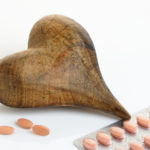By David Blyweiss, M.D., Advanced Natural Wellness
February 26, 2018
- You must screen for this to protect your heart
- Deficiency increases heart attack risk by 64%
- Getting tested is as easy as this
When you go to the doctor, certain testing generally happens without fail. Most doctors will automatically do a CBC to measure things like your red and white blood cell count.
They also test for lipid counts (cholesterol, triglycerides) and blood sugar. These days a lot of docs are even testing for homocysteine and C-reactive protein. These are both inflammatory markers for heart disease and other degenerative diseases.
But one of the most important tests you can get is one that many health experts say is unnecessary: Screening for vitamin D deficiency.
Some say the test is needless. They claim most of us get enough vitamin D without even trying. Others maintain that vitamin D screening isn’t supported by medical evidence.
That’s all a bunch of hogwash.
At minimum, 40% of Americans are vitamin D deficient. But depending on where you place the cut-off for deficiency it could be as many as 75%.
This is a huge problem. And it makes testing for vitamin D deficiency something that should become a routine matter. This is especially true when it comes to your heart health. That’s because, these days, there is a plethora of evidence linking low vitamin D levels to cardiovascular problems.
Deficiency Increases Heart Attack Risk by 64%
Here are some very startling numbers for you.
Compared to people with the highest levels of vitamin D, those with the lowest are shown to have…
- 40% higher risk of ischemic heart disease
- 64% higher risk of heart attack
- 57% higher risk of early death
- No less than an 81% higher risk of death from heart disease
These are absolutely horrible odds!
Are You Suffering From...
- Love handles and a pot belly
- Romance that isn't what it used to
- Forgetfulness and inattention
- Low (or no) strength and endurance
- A sex drive that's shifted into neutral...or worse
If so...you may have Mature Male Burnout. Click here to discover more about this unique condition and what you can do about it.
And when you consider that as many as three-quarters of Americans are vitamin D deficient, it suggests an entirely new perspective on why cardiovascular disease is the number one cause of death in the U.S. today.
On a molecular level, vitamin D appears to restore endothelial cells that have already been damaged. This means it has the potential to repair damage caused by things like hypertension, plaque build up and diabetes; thus reducing the risk of heart attack.
It also suggests that vitamin D supplementation could be extremely important to people who have experienced a heart attack or stroke – as it could trigger the restoration of damaged endothelial cells.
This makes vitamin D a powerful weapon when it comes to protecting your cardiovascular health.
The Simple Test that Can Protect Your Heart
It’s easy enough to find out what your vitamin D levels are. All you have to do is ask your doctor for a 25-hydroxy vitamin D test.
- If your levels are 30 ng/ml or lower, take at least 8,000 IU of vitamin D3 in the cholecalciferol form each day, then retest in three months. (Even better, look for a D3/cholecalciferol supplement that includes a low dose of vitamin K2.)
- If your levels are 31 to 40 ng/ml, supplement with a 5,000 IU daily combination for three months. Then retest.
- If your numbers are over 40, you’re not deficient. Still, it’s a good idea to take 2,000 to 4,000 IU daily to maintain sufficient levels.
Keep in mind that if your levels are low, your heart health could be at risk. So take the results of your test seriously and follow-up with adequate supplementation.
SOURCES:
Forrest KY, et al. Prevalence and correlates of vitamin D deficiency in US adults. Nutr Res. 2011 Jan;31(1):48-54.
Pludowski P, et al. Vitamin D supplementation guidelines. J Steroid Biochem Mol Biol. 2018 Jan;175:125-135.
Brøndum-Jacobsen P, et al. 25-hydroxyvitamin d levels and risk of ischemic heart disease, myocardial infarction, and early death: population-based study and meta-analyses of 18 and 17 studies. Arterioscler Thromb Vasc Biol. 2012 Nov;32(11):2794-802.
Ohio University study shows Vitamin D3 could help heal or prevent cardiovascular damage. Ohio University. Jan 2018.







